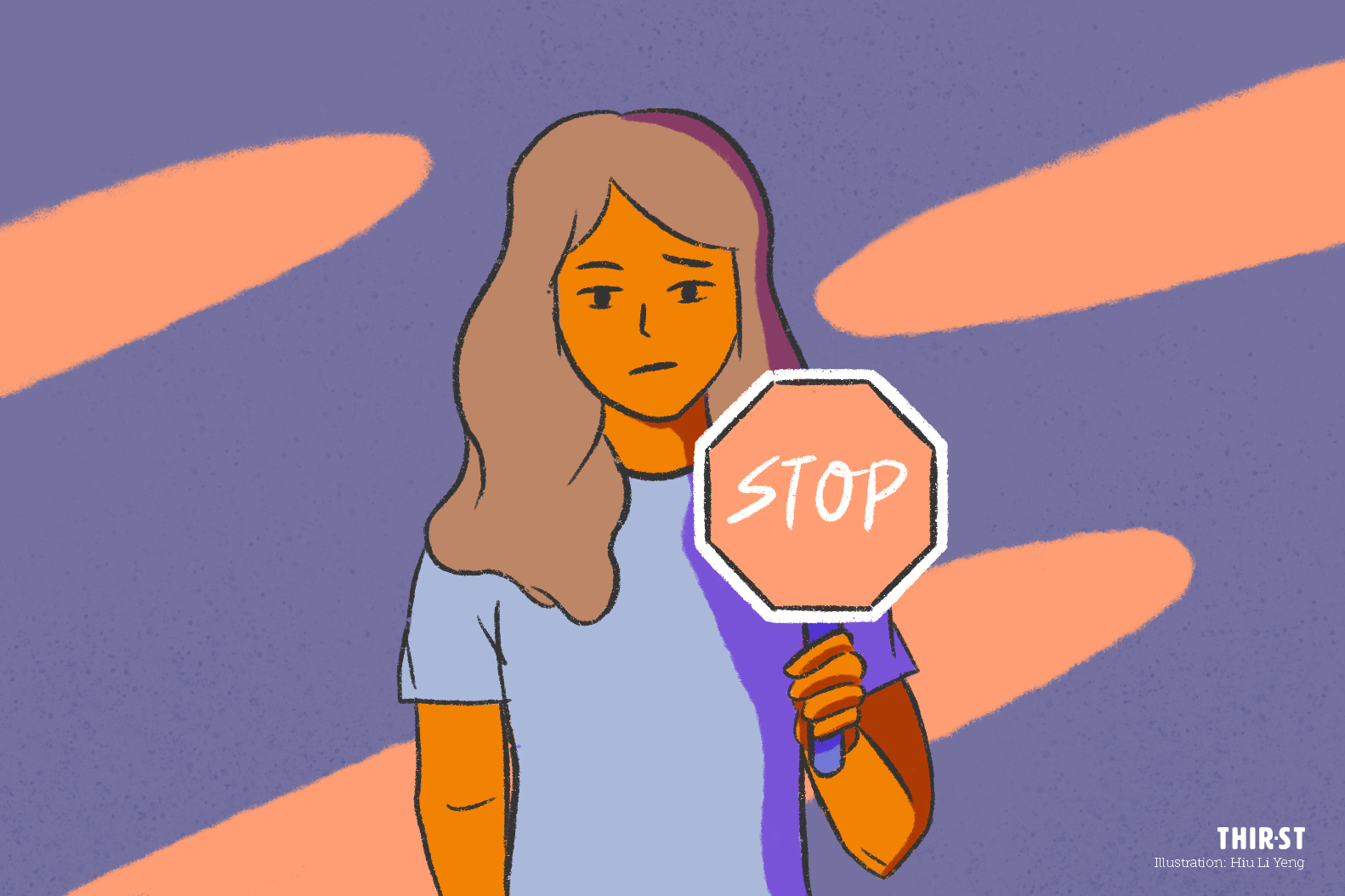I wouldn’t call myself a tomboy, but I’m admittedly a girl who has a lot of guy friends. Growing up, I found guys easier to talk to than girls.
The habit stuck and close friendships with guys became something natural to me. I would frequently hang out with guys and think nothing of it because we were “just friends“.
While there isn’t anything wrong with having a friend of the opposite gender, I’ve learnt however that there is a way to do it right.
1. BE HONEST WITH YOURSELF
What are your expectations?
Looking back at some of my friendships with guys, I can honestly say that I enjoyed these friendships in an unhealthy way. The label may have read “friends”, but the contents didn’t quite correspond.
For instance, there was one guy friend whom I had no romantic feelings for but I would text to ask for favours, knowing that he was likely to say yes because he liked me. I enjoyed the attention and special treatment I received from the opposite gender, even though I kept persuading others that this was a normal friendship.
If I had been more honest with myself back then, I would probably have caused less hurt. Truthfully, I treated the friendship as if it were a dating relationship without being willing to take on the responsibilities and commitments that came with dating since we were “just friends”.

Being clear about what’s in our hearts is important because everything we do flows from it (Proverbs 4:23). In Matthew 12:33-35 and Matthew 15:17, Jesus reminds us that our mouths speak what our hearts are full of.
Once we are honest with ourselves, what we can do next is to ensure that our actions reflect what’s inside. This brings me to my next point: What’s really being communicated in our friendships?
2. BE CLEAR ABOUT BOUNDARIES
Having clear expectations means we can set clear boundaries. Through my own experience, I’ve seen how certain actions can mislead others.
I once had a good friend – let’s call him T – whom I hung out with frequently. While I treated him like any other guy friend, it seemed special to him. He ended up liking me, and I was shocked when he confessed.
With hindsight, I realised I wasn’t acting in a way that reflected I wasn’t interested in him. We would spend a lot of one-on-one time together, talk about deep and personal things, and message one another frequently.
After his feelings came to light, I felt super guilty because I didn’t know that my actions were actually leading him on. If I was more aware, I would have been wiser in establishing boundaries and clearer with my intentions. It made me realise that male-female friendships require different approaches.
While I don’t have the golden list of boundaries to follow, because every friendship is different, I encourage you to exercise godly wisdom.
Paul Maxwell advised in his article Can Christian Men and Women Be Friends?: “Wisdom requires some no’s in order to maintain the safety and integrity that leads to life, and not the carelessness or liberty that leads to sin.”
You will need to ask God for the wisdom (James 1:5) to figure out your own boundaries and consider what you need to say “no” to in your friendship. Some things you can consider, which I personally try to follow in my friendships with guys now, include:
- No exclusive sharing of my deep, emotional and personal struggles.
- No going out one-on-one to private and/or dark spaces.
- No intimate physical contact.
- No giving of special treatment.

Many people misunderstand boundaries to be a set of rules given by our leaders that we’re not allowed to break. But Dr Henry Cloud, the author of Boundaries, says that boundaries are ultimately ours.
He explains:
“Boundaries define us. They define what is me and what is not me. A boundary shows me where I end and someone else begins, leading me to a sense of ownership. Knowing what I am to own and take responsibility for gives me freedom. Taking responsibility for my life opens up many different options. Boundaries help us keep the good in and the bad out.
“Setting boundaries inevitably involves taking responsibility for your choices. You are the one who makes them. You are the one who must live with their consequences. And you are the one who may be keeping yourself from making the choices you could be happy with. We must own our own thoughts and clarify distorted thinking.”
3. BE ACCOUNTABLE
Perhaps we avoid opening up to others, especially our leaders, because it means opening ourselves up to judgement or misunderstandings. In the past, I chose to hide certain things from my leader for fear of making things a bigger deal than they actually were.
With my good friend T, I only told my leader after he confessed. Better late than never, you might say. But I feel that much could have been avoided if I had been more open.
If I had just told my leader more about how frequently we were hanging out and how close we were getting, she could have warned me about how my actions were misleading.
If someone you trust has told you they’ve observed your friendship with a guy to be too intimate, maybe it’s a sign to step back and see whether there are boundaries in our friendship that need to be relooked. Rather than taking offence and going back into hiding, there could be wisdom in humbly taking the advice of others around us.
Our friendships can continue to blossom when we include the wider community, but we somehow turn to exclusivity instead, thinking that the space will help.
Adam and Eve hid from the Lord in the garden when they heard His footsteps approaching (Genesis 3:10). Rather than going to the Father in repentance, they chose to hide out of fear and shame.
Perhaps the exclusivity of our friendship has become like our hiding place, where we can hide our hearts from our community and maybe even God. If this is you, I’d like to encourage you to come out of hiding and trust that there is no condemnation for those who are in Jesus Christ (Romans 8:1).
If you see this as more than a friendship, have the courage to seriously consider whether you’re willing to enter into a relationship with this person. Get your leaders or mentors involved. Pray and seek God to guide you into greater clarity.
But if you see this as just a friendship and nothing more, ensure you are guarding yourself and your brother- or sister-in-Christ.
There is no shame in wanting to pursue a friendship or relationship with the opposite gender, so long as you are honouring God and each other in that pursuit. This means constantly examining our hearts to check our intentions, communicating clear boundaries and connecting with others in our community.
- Do you have any friendships with the opposite gender that may be unhealthy? Take the chance to evaluate your expectations.
- What boundaries have you established for your friendships with the opposite gender to ensure that there is no miscommunication of intent? What do you need to say “no” to?
- Is there anything in your friendships that you’re ashamed to tell others about? How about confiding in a more mature Christian whom you can trust?









